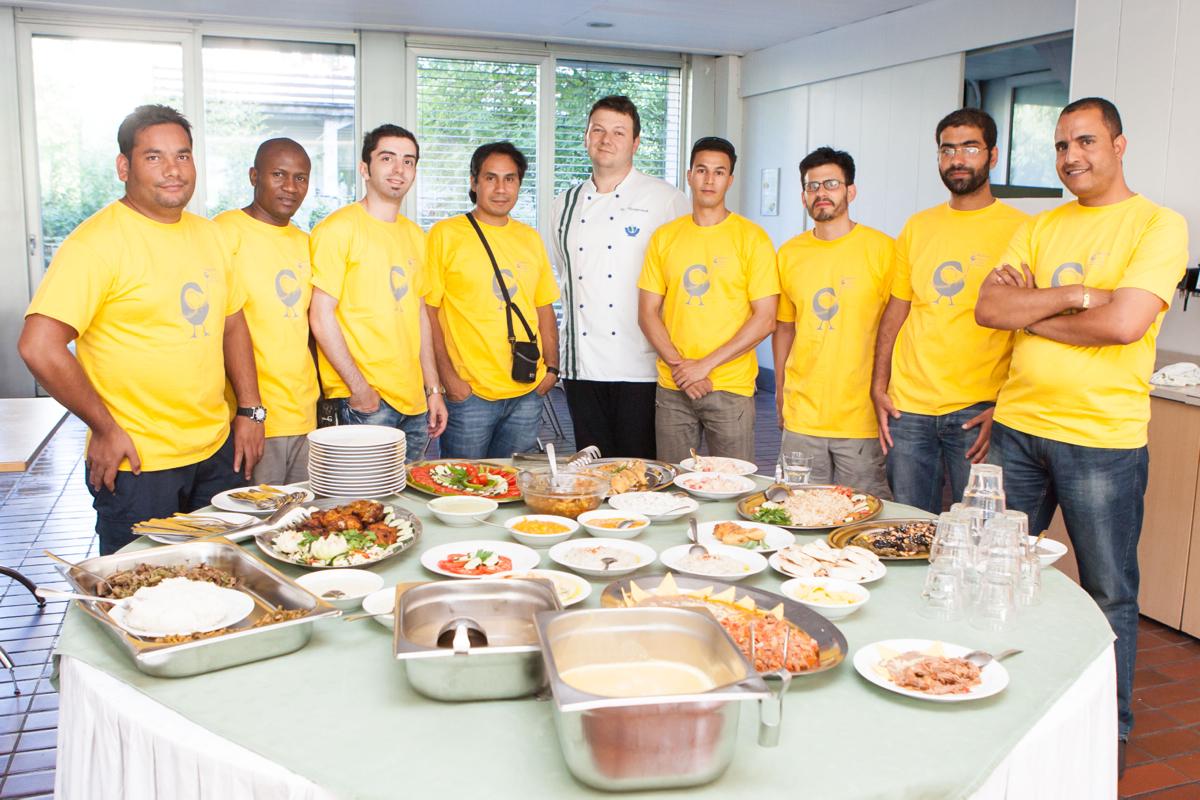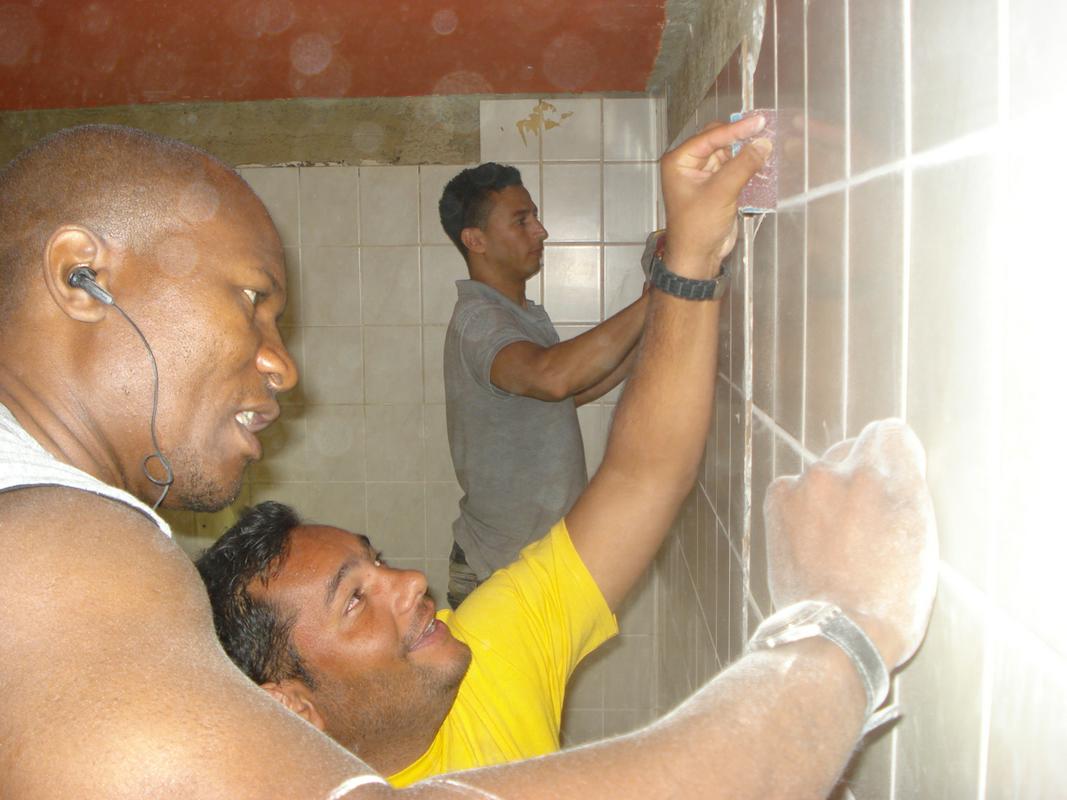It is easier for me, as my complexion is fair and I don't look like a foreigner. I have a dark-skinned friend, however, who has more problems. When we go out in the evening and he dances with a girl, there is always a drunk who keeps complaining in a loud voice about such a person attacking 'our' women.

At fasting my wife always supports me and cooperates with me, although she is not a Muslim by religion. I never forced her or tried to convince her. I know some Muslims demand that their partner accepts their religion, but in my opinion you have to accept a religion out of love for God, and not for your partner.

Spain is an explicitly patriarchal society. Females are mostly used to being taken care of by their husbands. Some of them are even not capable of driving by car to the store without their husband. My problem was not the difficulty of finding an employment due to crisis; I was afraid I would never become independent there.
It matters whether you are a Moroccan, or a Canadian
The persons I spoke with are convinced that the attitude of the local people mainly depends on prejudices against the countries they came from. Hasan is convinced the attitude towards him would be different were his native country Canada, and not Morocco. "A lot of people are prejudiced against Morocco, as I learned while working there as a tourist guide; the Europeans were fascinated with the fact that the environment was different from what they had expected."
Each foreigner carries the "baggage" of his country, believes Raj, who came to Slovenia from India. "A lot of damage is done by tourist guide books, e.g. the Lonely Planet which warns tourists to beware of thieves. And as soon as they meet a person in India speaking they language, the warning comes to their minds, and their first reaction is fear that that person is trying to rob them. They don't even consider the possibility that they have simply met a person who is proud of being able to speak a foreign language. As if no thefts occur in the suburbs of French cities – you can be sure that is not mentioned in any guidebook for France."
Where is Slovenia?
Mojca met with prejudice during her Spanish adventure, but only after trying to explain to people the location of Slovenia. "At first I tried to explain by referring to ex-Yugoslavia, but the result was that everybody took if for granted that I had come to Spain because of the war." When she moved her reference point closer to the Carpathian Mountains, she faced Spanish prejudices against season workers from Romania, the same ones we often see at the Slovenian highway rest stops; those people who are allowed to enter the shop only in small groups, supervised by a security guard, in order to prevent eventual shoplifting …
From a substantial salary to a piece of grinding paper
Besides learning the profession, the participants of the Skuhna project had another, much less appealing task: get the premises ready for opening a restaurant. Besides training they had a lot of cleaning to do, as the premises had been empty for quite some time.
During one of the cleaning actions Jaber, a Palestinian who also found the love of his life in Slovenia, put us in charge of cleaning the grout between tiles in the future kitchen. Stephen and I hoped for some chemical cleaners, or even a vapour cleaner, but in vain – we got a piece of grinding paper each, and started cleaning the wall which had turned yellow.
And while Hasan and I, each with his own piece of grinding paper in hand, chafed each his own part of the wall, I asked him if he missed home, considering the situation at hand. "Sometimes I do, indeed. As a tourist guide I could earn up to several thousand Euros per month, especially when I a commission by salesmen had been agreed upon, or there were wealthy Russians in the group." But money is not everything, Hasan continued. "Suddenly I realised I was only clubbing with tourists, and smoking hashish. I am not young any more, and can't keep up doing it anymore, so I wished for a change."
Better conditions for children
At a certain moment Raj also wished for a change of lifestyle: "I had a hotel in India, and I had rented a property on which we had a tourist settlement. But business can be overwhelming and makes you constantly wish for more. Eventually I got connected with dangerous people, and if I hadn't decided to make a big change in life, I might have entered into questionable business deals." The conditions in India had influenced his decision as well, as he and his wife are positive their child would have better opportunities for education and career in Slovenia.
The conditions in his native country encouraged Mohamed from Egypt to move to Slovenia. Mohamed and his wife, a Slovenian, lived in Egypt for nine years. When the conditions aggravated, they decided to move. Therefore Mohamed is, although he has not found work in Slovenia yet, delighted with the peaceful life they live now.
Intercultural love
Intercultural love must face intercultural differences as well, but my co-speakers find them surmountable. Both Mohamed and Hasan spoke highly of their wifes, who support them both in practicing their customs, mainly at fasting, and during Ramadan. "At fasting my wife always supports me and cooperates with me, although she is not a Muslim by religion. I never forced her or tried to convince her. I know some Muslims demand that their partner accepts their religion, but in my opinion you have to accept a religion out of love for God, and not for your partner," said Mohamed.
On the other hand Mojca claims that in the end intercultural differences became fatal for her relationship. "Spain is an explicitly patriarchal society. Females are mostly used to being taken care of by their husbands. Some of them are even not capable of driving by car to the store without their husband. My problem was not the difficulty of finding an employment due to crisis; I was afraid I would never become independent there. For the last two years I worked in a coffeehouse owned by my in-laws; I considered it a form of dependence."
Economic independence, conflicts and a damaged selfimage
Economic independence and exclusion from the labour market and other spheres of everyday life have substantially damaged Mojca's selfimage. "When I spoke to my former colleagues from the faculty, I learned that they all had good positions in the field of economy, while in Spain I wasn't even able to gain economic independence."
But, according to the people I spoke with, even bigger problems are faced when a couple is forced to live permanently in a "mother’s hotel", as the conflicts are rather common. Raj's father-in-law believes the distance between parents and children is advisable even when the children lack economic independence. That's the reason he divided his house into two independent units, he offered his explanation along with a glass of home-made malvasia. Raj added that such conflicts can be of a very serious nature. "If you want to see the consequences of such situations, you should drop by to our course of Slovenian. The other day a girl who came to Slovenia from Spain burst into tears – she said she simply couldn't stand any more living with her mother-in-law." I was intrigued by her story, so I asked him to introduce me to her, but it was too late – she had already returned to Spain.
It is easier for me, as my complexion is fair and I don't look like a foreigner. I have a dark-skinned friend, however, who has more problems. When we go out in the evening and he dances with a girl, there is always a drunk who keeps complaining in a loud voice about such a person attacking 'our' women.
At fasting my wife always supports me and cooperates with me, although she is not a Muslim by religion. I never forced her or tried to convince her. I know some Muslims demand that their partner accepts their religion, but in my opinion you have to accept a religion out of love for God, and not for your partner.
Spain is an explicitly patriarchal society. Females are mostly used to being taken care of by their husbands. Some of them are even not capable of driving by car to the store without their husband. My problem was not the difficulty of finding an employment due to crisis; I was afraid I would never become independent there.


































































